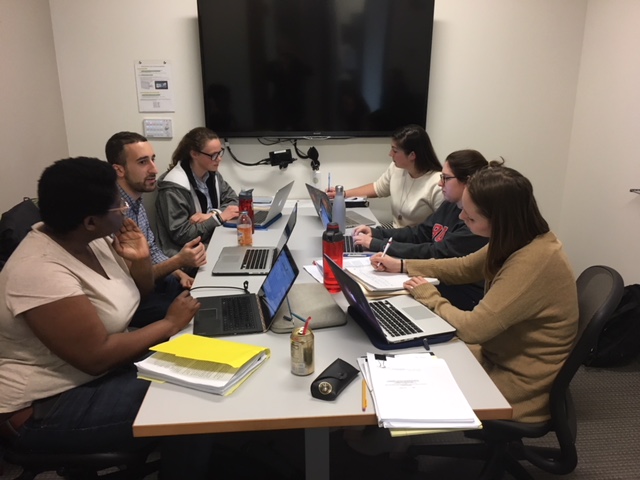Learning Transactional Practice Skills at BU School of Law
By

How BU's Transactional Law Program is flipping the classroom to enhance practice-readiness and help students add value to employers from day one.
Professor Kent Coit used to run deals at Skadden, and now at BU School of Law he develops and rolls out courses that simulate deals to help students prepare for transactional practice.
Kent is Professor of the Practice of Law and Director of BU's Transactional Law Program, which prepares students for what they'll face as associates.
"I spent 30 years in Skadden's M&A department before becoming a professor, and I wanted to bring that experience to the classroom to help students succeed after graduation," Kent said.
Learning by Doing
BU's Transactional Law Program includes six different transaction simulations, in which students perform the tasks that attorneys actually do at each major stage of the deal.
One of these courses, which Kent designed with Karen Carter, Assistant Director of the program (and also a Skadden alum), is called "Transaction Simulation: Auction and Sale of a Private Company." The course simulates a private M&A deal from beginning to end, and students work on everything from the preliminary deal documents, such as a financial advisor engagement letter and confidentiality agreements, to due diligence memos and merger agreements, to the closing.
A basic premise of this course and the other transaction simulations is that, like in a law firm, transactional lawyering skills are learned by doing and receiving feedback from more senior lawyers.
While in-class lecture is sometimes used to introduce students to the key concepts, issues, and lawyering skills they'll be dealing with in a particular stage of the deal, the principal pedagogical approach is for students to gain a basic understanding of and practice key transactional lawyering skills through out-of-class assignments. "Hotshot's videos on M&A, which BU School of Law was the first law school in the country to license, helps us do this," Kent says.
This means that more class time can be spent discussing student work product as a group and engaging in in-class simulations, such as presentations to clients, negotiations, and board meetings. This tests students' understanding of the issues and also lets them develop important lawyering skills.
Flipping the Classroom
To accomplish this, the course incorporates digital learning and blended learning techniques.
- The syllabus takes students through each of the major stages of the simulated transaction, over a 13-week semester.
- To prepare for class, the students read articles, watch short Hotshot videos on specific M&A skills and complete actual assignments that they would receive as associates in the particular stage of the transaction, such as marking up a confidentiality agreement, preparing a due diligence memorandum, revising an acquisition agreement, or drafting closing documents.
- In class, the students' assignments are reviewed and made part of a "real-time" exercise, often conducted in teams, intended to test students' comprehension and develop their skills such as oral communication, collaboration, and negotiation.
This structure allows less live class time to be spent lecturing - the students are exposed to the basics, and apply them in homework assignments submitted, before class, and classes are more engaging, interactive, and effective.
"The feedback we receive from our students is extremely positive," said Karen. "They love the interactive nature of the class, which is much more effective than lecturing when it comes to teaching the practical skills these students need to be successful after graduation."
And since the course is designed to reflect a real deal from start to finish, the last class of the semester includes a mock closing celebration - but with real champagne.